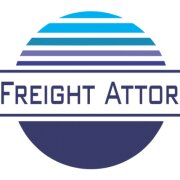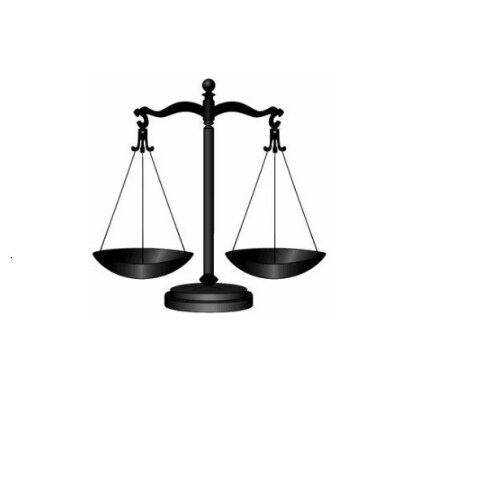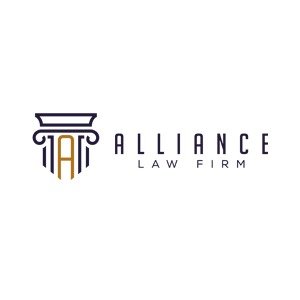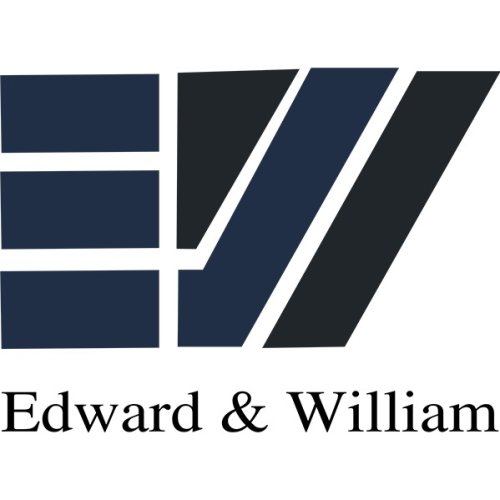Best Restructuring & Insolvency Lawyers in Port Harcourt
Share your needs with us, get contacted by law firms.
Free. Takes 2 min.
List of the best lawyers in Port Harcourt, Nigeria
About Restructuring & Insolvency Law in Port Harcourt, Nigeria
Restructuring and insolvency law in Port Harcourt, and Nigeria as a whole, provides the legal framework for dealing with financially troubled businesses or individuals who are unable to pay their debts. The law covers a range of processes, including the reorganization of a company's operations, debts, and assets, as well as liquidation and bankruptcy for both individuals and corporate entities. The primary purpose is to restore solvency, protect creditors' interests, and, where possible, enable viable businesses to continue operating. Port Harcourt, being a commercial hub in southern Nigeria with many oil and gas, construction, and trade businesses, often sees complex insolvency cases that require careful legal navigation.
Why You May Need a Lawyer
If you are facing financial distress, or your business is unable to meet its debt obligations, restructuring and insolvency lawyers play a critical role in safeguarding your interests. Common situations where legal help may be required include:
- When creditors are demanding payment and threatening legal action
- If your company is unable to pay its workers, suppliers, or lenders
- When you need to negotiate debt restructuring agreements with financial institutions
- During business reorganization, mergers, or acquisitions involving distressed assets
- For guidance on voluntary or involuntary liquidation processes
- When you need to protect your assets from creditors or avoid potential criminal liabilities
- If you want to initiate bankruptcy proceedings, or are served with a bankruptcy notice
- When you are a creditor seeking recovery of debts owed by an insolvent entity
- If you are worried about directors' responsibilities and personal liability during insolvency
Legal advice ensures you comply with the law, understand your rights, and make informed decisions under what is often a stressful situation.
Local Laws Overview
Nigeria’s restructuring and insolvency legal regime is governed primarily by the Companies and Allied Matters Act (CAMA) 2020 and the Bankruptcy Act, alongside rules from the Federal High Court and the local Port Harcourt courts. The following are key aspects relevant to cases in Port Harcourt:
- Insolvency Proceedings: The process for declaring insolvency or bankruptcy involves court applications, creditor notification, and, in the case of companies, possible appointment of receivers or liquidators.
- Restructuring Options: Debtors may enter into arrangements or compromises with creditors, supervised by the courts, to restructure their obligations and possibly avoid liquidation.
- Receivership and Liquidation: Creditors, such as banks, may apply to the courts to appoint receivers or managers to recover debts, or liquidate the assets of insolvent companies to repay creditors.
- Director's Duties: Company directors in Port Harcourt are required to act responsibly during financial distress to avoid fraudulent trading or wrongful trading claims that can lead to personal liability.
- Local Considerations: Business disputes, enforcement of security interests, and creditor-debtor interactions in Port Harcourt can also be influenced by local rules, court backlogs, and sector-specific regulations, especially in oil, gas, and maritime industries.
A restructuring or insolvency lawyer in Port Harcourt can help you understand how these local procedures and nuances might affect your case.
Frequently Asked Questions
What does it mean for a company to be insolvent in Port Harcourt?
A company is considered insolvent when it cannot pay its debts as they become due. In Port Harcourt, as elsewhere in Nigeria, insolvency can be cash flow-based (inability to pay debts when due) or balance sheet-based (liabilities exceed assets).
Who can start insolvency proceedings in Port Harcourt?
Both creditors and debtors may initiate insolvency proceedings. A creditor can petition the court for liquidation if a debtor fails to pay, while companies can also voluntarily declare insolvency to seek protection or restructuring.
How are assets distributed in the event of liquidation?
In liquidation, assets are realized and distributed to creditors in a set order of priority: secured creditors first, followed by unsecured creditors, then shareholders if anything remains.
Can individuals also declare bankruptcy in Port Harcourt?
Yes, individuals facing overwhelming debts can declare bankruptcy under the Bankruptcy Act. The process involves court application, and may result in asset transfers to pay debts.
What is the role of a liquidator or receiver?
A liquidator manages the winding up of a company, selling assets to repay creditors. A receiver, often appointed by secured creditors (like banks), takes control of specific charged assets to recover funds.
How long does an insolvency process usually take in Port Harcourt?
The duration varies depending on case complexity, the number of creditors, court schedules, and whether disputes arise. Simple liquidations can take a few months, while complex restructurings may last a year or more.
Are there alternatives to liquidation for struggling businesses?
Yes, options include out-of-court restructuring, informal workouts with creditors, or formal arrangements (schemes of arrangement) supervised by the courts to reorganize debts without liquidating the company.
What risks do directors face if their company becomes insolvent?
Directors must avoid actions such as incurring new debts the company cannot pay, or dissipating assets. Personal liability can arise for wrongful or fraudulent trading under CAMA and other laws.
Can foreign creditors enforce their rights in Port Harcourt insolvency cases?
Yes, but they must follow Nigerian court procedures. Enforcement may be subject to local recognition of foreign judgments or insolvency orders, and sometimes may be slower due to jurisdictional coordination.
Do I always need a lawyer for restructuring or insolvency issues?
While not mandatory in some cases, legal representation is strongly advised to avoid costly mistakes, ensure compliance, and protect your interests - especially in court proceedings or complex negotiations.
Additional Resources
If you require more information or assistance on restructuring and insolvency issues in Port Harcourt, consider the following resources:
- Corporate Affairs Commission (CAC): Regulates companies and provides statutory forms and information relevant to restructuring and winding up.
- Federal High Court, Port Harcourt Division: Handles insolvency, restructuring, and bankruptcy matters. The registry can provide procedural guidance.
- Nigeria Deposit Insurance Corporation (NDIC): Oversees bank insolvency, liquidation, and depositor protection when financial institutions fail.
- Nigerian Bar Association, Port Harcourt Branch: Can provide referrals to qualified restructuring and insolvency lawyers.
- Chambers of Commerce or Local Business Associations: Some provide seminars or advisory services for small businesses facing financial distress.
Next Steps
If you or your business is facing insolvency or requiring restructuring assistance in Port Harcourt, consider the following steps to protect your interests:
- Gather all relevant financial documents, including debt schedules, contracts, and correspondence from creditors.
- Contact a qualified restructuring or insolvency lawyer with experience in Port Harcourt for an initial assessment.
- Discuss your options, including restructuring, negotiation with creditors, or initiation of insolvency proceedings.
- Follow your lawyer’s guidance on communications with creditors to avoid missteps that could worsen your situation.
- Ensure you comply with all legal requirements to avoid personal liability or criminal repercussions.
- Keep detailed records of all proceedings and decisions for reference and accountability.
Prompt legal advice is often crucial. The earlier you seek professional guidance, the more options you may have to resolve financial challenges and protect your future in Port Harcourt.
Lawzana helps you find the best lawyers and law firms in Port Harcourt through a curated and pre-screened list of qualified legal professionals. Our platform offers rankings and detailed profiles of attorneys and law firms, allowing you to compare based on practice areas, including Restructuring & Insolvency, experience, and client feedback.
Each profile includes a description of the firm's areas of practice, client reviews, team members and partners, year of establishment, spoken languages, office locations, contact information, social media presence, and any published articles or resources. Most firms on our platform speak English and are experienced in both local and international legal matters.
Get a quote from top-rated law firms in Port Harcourt, Nigeria — quickly, securely, and without unnecessary hassle.
Disclaimer:
The information provided on this page is for general informational purposes only and does not constitute legal advice. While we strive to ensure the accuracy and relevance of the content, legal information may change over time, and interpretations of the law can vary. You should always consult with a qualified legal professional for advice specific to your situation.
We disclaim all liability for actions taken or not taken based on the content of this page. If you believe any information is incorrect or outdated, please contact us, and we will review and update it where appropriate.

















